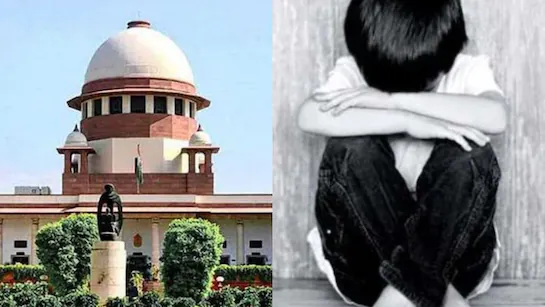– T. R AISIRI RAO
In an uncommon move, the Supreme Court while exercising its power under Article 137 has overturned its previous judgement of granting permanent custody of a 12-year-old boy to his biological father after. The Court’s decision was prompted by new psychological evidence indicating that separation from his mother has a severe negative impact on the mental health of the child.
The article examines the case of Neethu B. @ Neethu Baby Mathew v. Rajesh Kumar, (2025) INSC 853 wherein a judgement that was delivered by a bench of Justice Vikram Nath and Justice Prasanna B. Varale in a review petition.
FACTUAL MATRIX
The petitioner-mother and respondent-father got married in 2012 and the boy was born in the same year. However, they later dissolved the marriage by an agreement based on mutual consent regarding the terms of divorce and custody of the child in 2014. The custody remained with the mother and the father was granted visitation rights on two Saturdays in a month.
The petitioner got remarried and had another child. She was residing with her husband and children in Thiruvananthapuram. The respondent, despite his best efforts, remained unaware of the whereabouts of the petitioner and his son from 2016 until October 2019, when the petitioner contacted him to get his signatures for the son’s international travel. It was only then that the respondent became aware about the petitioner’s intentions to relocate the minor son to Malaysia.
To oppose the same, the Respondent approached the Family Court seeking permanent custody of the minor son. The court disallowed the prayer for permanent custody and granted the mother the permission to take the child with her abroad only during Onam, Christmas and summer vacation. Both parties filed appeals against the above order before the High Court of Kerala which granted the permanent custody of the child to the father while granting visitation rights to the mother.
Consequently, the petitioner filed an SLP in 2023, in the Supreme Court which was dismissed in 2024, thereby effectively affirming the permanent custody of the child with the father. Subsequently, the petitioner filed a review petition citing a clinical psychologist’s report dated September 3, 2024 which indicated anxiety and fears with a high risk for separation anxiety disorder in the child.
THE JUDGEMENT
The Supreme Court relied on the judgement of Kamlesh Verma v. Mayawati [1] which laid the scope of maintainability of a review petition. The Court entertained the review on the ground that child’s deteriorating mental health constituted new evidence that could not have been produced earlier and had a direct bearing on the outcome. It was observed that the child’s stress and anxiety was a direct consequence of the judicial order which changed the custody.
The psychological reports indicated that the child perceives the mother as the primary caregiver and identifies the step farther and half-brother to be a part of his immediate family and feels immensely secure in that setting. The Court further observed that even though the respondent- father wished to reconnect, he had not spent even a night with his child which led to the absence of an emotional bond.
Therefore, the Court allowed the review petitions and granted the permanent custody to the petitioner-mother while strictly restraining her from changing the current residence of the child to outside India except during Onam, Christmas and 50% of the period of the child’s summer vacation.
The Court permitted virtual and in-person visitation rights to the respondent-father and advised both parties to not let their bitter past impede the well being of the child.
LEGAL AND SOCIETAL SIGNIFICANCE
The judgement reflects the shift in judicial interpretation of child welfare from physical care to encompass emotional and psychological security. This decision moves away from the traditional presumption that the child’s best interests lie in being raised by biological parents. Instead, it prioritises emotional safety, attachment and mental health in determination of custody.
By invoking Article 137, the Court affirmed that finality of judgements must yield to justice in exceptional circumstances, especially when the interests and rights of vulnerable persons are at stake. It may serve as a precedent for future cases where psychological evidence post-judgement reveals harm to the child.
CONCLUSION
The Supreme Court’s decision illustrates a progressive and compassionate approach to custody law. This is not just a victory for the mother, but more importantly, a reaffirmation that a child’s well being is paramount and must always guide judicial discretion.
[1] Kamlesh Verma v. Mayawati and Others, (2013) 8 SCC 320

